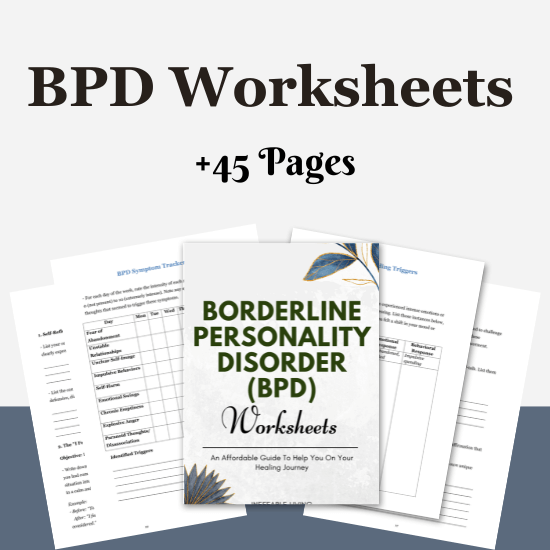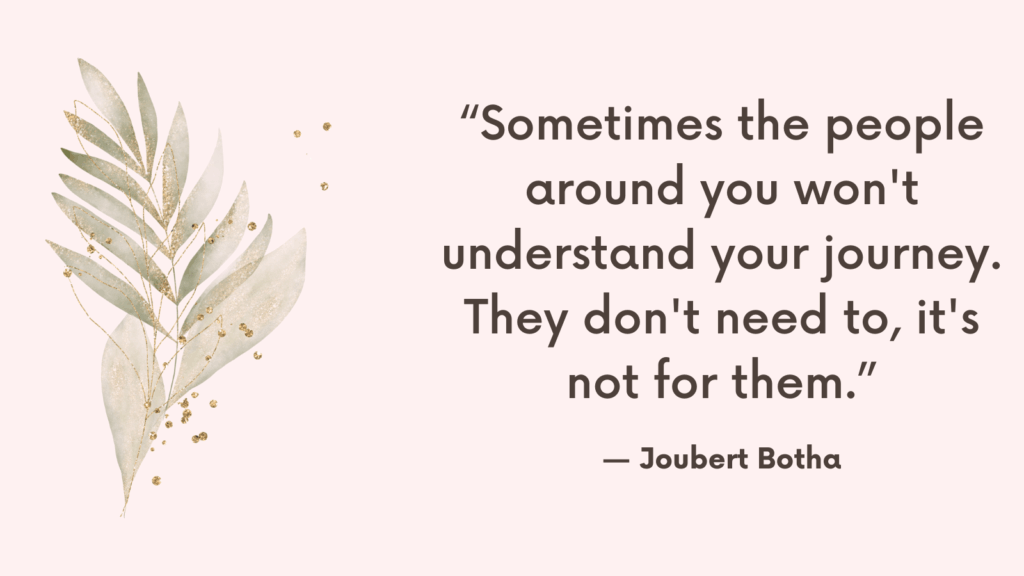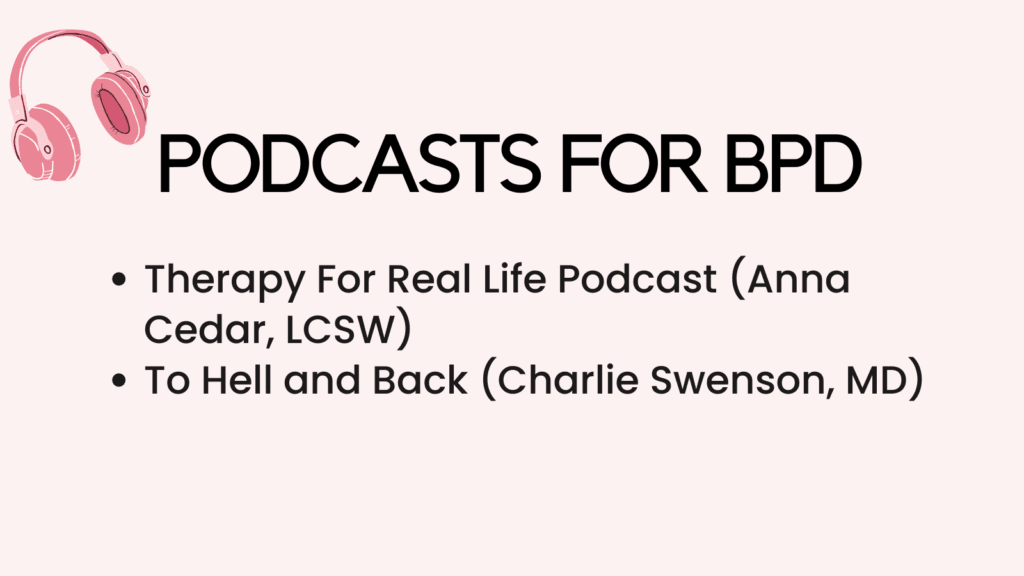Breaking up is hard — but ending a relationship with someone who has Borderline Personality Disorder (BPD) can be especially complex. The emotional intensity, fear of abandonment, and vulnerability to rejection can make even calm conversations feel explosive or devastating.
But a breakup doesn’t have to be cruel to be clear. With the right mix of compassion and boundaries, you can end a relationship with someone who has BPD in a way that is honest, respectful, and emotionally safer for both of you.
Here’s how to navigate it with clarity and care.
What Makes BPD Breakups Different?
When you break up with someone who has BPD, you’re not just ending a relationship — you may be triggering some of their deepest core fears:
- Fear of abandonment
- Intense rejection sensitivity
- Black-and-white thinking (you’re either “all good” or “all bad”)
- Emotional dysregulation (rage, panic, despair, or shutdown)
Even if the decision is clear for you, it may feel like betrayal or destruction to them. Their reaction is usually not manipulation — it’s emotional pain flooding the system.
What You Might Experience After the Breakup
You may face a mix of:
- Pleading or begging: “Please don’t leave me. I can change.”
- Emotional outbursts or rage: Accusations, blame, sudden anger
- Idealization/devaluation swings: “You were perfect” → “You ruined my life”
- Threats of self-harm or suicide: A desperate attempt to stop the loss
- Ghosting or blocking: As a form of emotional self-protection
- Sudden attempts at reconnection: They may reach out in extreme emotional states
Be prepared for emotional volatility — and stay grounded in your decision.
Related: Top 7 Skills For Coping With BPD [+ BPD FREE Resources]
How to Handle Breakups with Someone Who Has BPD (With Compassion)?
1. Understand What You’re Dealing With
Before the breakup, know this: People with BPD often experience intense fear of abandonment. Even a small change in tone or distance can feel like rejection on a deep, painful level.
A breakup may trigger:
- Rage, panic, or pleading
- Deep shame or self-blame
- Threats of self-harm or suicide
- Idealizing you one moment, and devaluing you the next
- Clinging followed by cutting you off
Knowing this doesn’t mean you avoid breaking up — but it helps you prepare to handle the emotional fallout with empathy.
2. Get Clear on Your Intentions
Before initiating the conversation, ask yourself:
- Is this breakup final, or am I unsure?
- Am I leaving because the relationship is unsafe, unfulfilling, or unmanageable?
- Am I prepared to enforce this boundary consistently?
Clarity is kindness. Mixed signals (e.g. “I don’t want to be with you… but I still love you”) can increase confusion and pain.
3. Choose the Right Setting
Break up in a way that’s:
- Private — not in public or over text unless safety requires it
- Safe — ideally where both of you feel secure and grounded
- Calm — don’t do it during an argument or emotional escalation
If there’s any history of threats, violence, or emotional volatility, consider a neutral location or bring a trusted third party into the loop.
Related: What Is Quiet Borderline Personality Disorder?
4. Be Honest — But Gentle
Use clear, direct language — with empathy:
- “This relationship has meant a lot to me, but I’ve realized we’re not healthy for each other.”
- “I care about you, and I need to end this relationship for my well-being.”
- “This isn’t about you being ‘too much’ — it’s about what I’m capable of continuing.”
Avoid blaming, diagnosing, or dissecting their behavior. Focus on your truth, not their flaws.
5. Prepare for Intense Reactions
You may hear:
- “You’re abandoning me.”
- “You never really loved me.”
- “You’re just like everyone else.”
- “I can’t live without you.”
Stay calm. Don’t argue, defend, or try to reason with every accusation. Instead, validate their pain without agreeing to stay:
- “I know this hurts — and I’m not changing my mind.”
- “I hear that you feel abandoned. That’s not my intention, but I understand it feels that way.”
- “I care about you, but continuing this relationship would be dishonest and harmful for both of us.”
Related: Borderline Personality Disorder Support Group
6. Set Firm, Kind Boundaries After the Breakup
Boundaries are essential — for both of you to heal. That may include:
- No-contact or limited contact
- Blocking social media if needed
- Not responding to every emotional message
- Being consistent in your distance
Every time you re-engage after the breakup, it can reopen the wound. Compassion with boundaries is the most respectful thing you can do.
7. Do Not Try to Be Their Therapist
You may want to comfort them, help them process the breakup, or “stay friends to protect them.” But doing so often prolongs the pain and prevents healing.
You are not responsible for fixing their emotional state. You can care without caretaking.
If you’re worried about their safety, encourage them to reach out to:
- A therapist or counselor
- A mental health crisis line
- Trusted friends or family members
8. Leave Resources If You’re Concerned
You can leave them with tools to support their healing (without continuing the relationship):
- A list of therapists or DBT resources
- A message that says, “I hope you find the support you deserve”
- A reminder that their feelings are valid, and healing is possible
You’re not saving them — you’re pointing them toward help they can choose to accept.
Related: Best 20 Tips On Dating Someone With BPD Without Becoming A Caretaker
9. Take Care of Yourself After the Breakup
You may feel guilt, doubt, or relief — sometimes all at once. That’s normal.
- Talk to a therapist or someone who understands personality disorders
- Journal your reasons to stay grounded in your decision
- Don’t romanticize chaos — focus on why you left, not just what you miss
You need space, too, to detox from the emotional intensity of the relationship and rebuild your own stability.
10. Remember: Compassion Isn’t Staying in Harm
Breaking up with someone who has BPD doesn’t make you cruel. And respecting their emotions doesn’t mean sacrificing your peace.
You can:
- Acknowledge their pain
- Stay calm and kind
- Walk away with love — and boundaries intact
That’s not cold. That’s clarity with compassion.




![BPD Support Groups [Online & In-Person]](https://ineffableliving.com/wp-content/uploads/2022/09/Borderline-Personality-Disorder-Support-Group-1024x576.png)